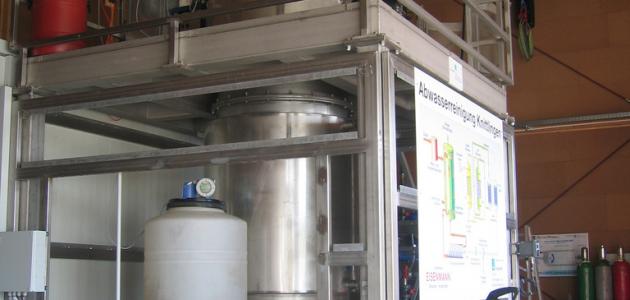Generating heat to heat water
Solar systems can heat water at home, but it is necessary for the tanks used to be well insulated to maintain the hot water temperature once the sun sets, and this system usually requires a backup heating tank.
Generating electricity for homes
The most common use of solar energy is to generate electricity for homes. A person can save energy by choosing an electrical system that is generated by the sun instead of subscribing to the local electricity company.
High temperature production
The sun's rays are focused over a wide area on the receiver, thus causing a significant increase in light intensity, producing high temperatures. Carefully aligned mirrors or lenses can be used in so-called solar ovens, where they focus enough sunlight to heat temperatures. Reaching 2000°C (3°F) or more, this heat can be used to study the properties of materials at high temperatures, or used to operate a heater, which in turn generates steam for a steam power plant. To produce steam, movable mirrors are arranged so that Large amounts of solar radiation are focused on the black pipes through which the water is distributed and thus heated.
photosynthesis
Life on Earth depends on solar energy for food, either directly or indirectly. Autotrophs also depend directly on solar energy, as they absorb sunlight and convert it into nutrients through a process called photosynthesis, which includes... Both: plants, algae, bacteria, and fungi. Therefore, autotrophs are the basis of the food web, as consumers depend on producers for food. Animals that eat grass, and those that eat meat, all depend on solar energy indirectly.
Read also:A lake between Jordan and PalestineFossil fuels
Photosynthesis is also responsible for all types of fossil fuels on Earth, as scientists estimate that about 3 billion years ago, the first autotrophic organisms evolved in aquatic environments, where sunlight allows plant life to flourish and develop, and when these organisms die, they decompose in the depths of Earth for a period lasting for millions of years, and under intense pressure and high temperatures, these remains turn into what is known as fossil fuel, producing oil, natural gas, and coal. People have developed the processes of extracting these types of fossil fuels, and they have been used for energy, but the problem is It lies in the fact that it is not renewable, because the process takes millions of years to take shape.
Other uses of solar energy
Solar energy is also used on a small scale for purposes other than those described above. In some countries, for example, specially designed solar ovens are used for cooking, and are also used to produce salt from seawater by evaporation.
Read also:Wastewater treatment methods








